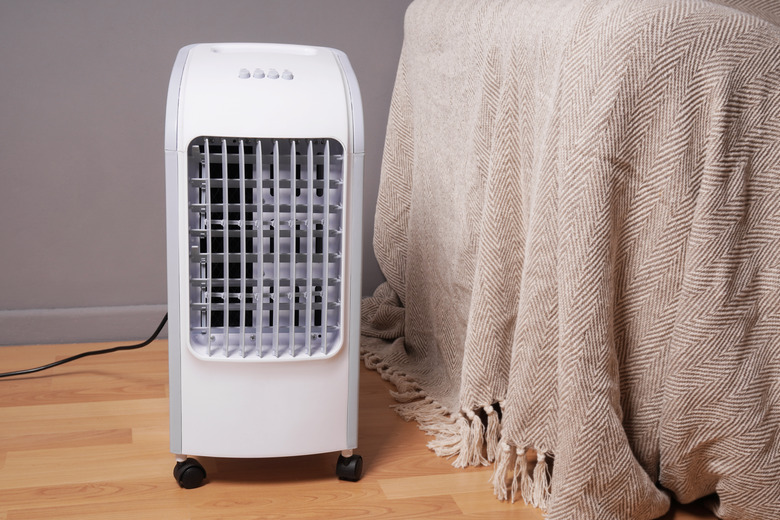The Disadvantages Of Portable Air Conditioners
Portable air conditioners give you an option if you don't have central air and don't want to use a window air conditioning unit. These portable cooling units can cool the home considerably during hot weather, and you can place them in any room you wish. Additionally, if you change your mind about where to place them, you can move them elsewhere. Portable air conditioners are a good option for home cooling, but these devices have their share of disadvantages as well.
Tip
Some disadvantages of portable air conditioners include heavy units that are difficult to move, high noise levels, draining the water regularly and the limited cooling space the unit offers.
Difficulty Moving Portable Air Conditioner
While the ability to move a portable unit from the living room in the evening to the bedroom overnight may be one of its biggest advantages, actually making the move isn't always as easy as it sounds. Portable air conditioners are a fairly heavy piece of equipment. A portable air conditioner with wheels that allow for easy movement on hard surfaces, but if you have a model without wheels or have thick carpet to navigate, moving from one room to the next can be quite an ordeal. This can be an especially significant disadvantage for the elderly or those with bad backs because of the weight.
High Noise Levels
A central air conditioning system is quiet, with only the sound of the air rushing through the ductwork to disturb the peace. Even a window unit is low on noise because the noisy portion of the unit is technically outside the home. But the portable air conditioner is in the room with you in many instances, and all of the noise is there as well. Running some portable air units in the room where you are sitting can drown out television, music or conversation. Look for units with quiet operation to cut down on interference with your normal activities.
Dealing With Water
A portable air conditioner works partially due to it pulling humidity out of the air. When this moisture is pulled from the air, it must go somewhere. The resulting water on central and window units ends up outside while a portable air conditioner creates condensation indoors.
Portable air conditioners sometimes have a drain pan inside the unit that you have to empty regularly. This maintenance can be time-consuming, and you have to remember to empty the pan frequently. Other types of air conditioners, including window units, don't require this regular draining.
An alternative is a self-evaporating portable air conditioner, which reuses part of the water for the cooling process and sends the rest outside through an exhaust pipe. While a self-evaporating unit reduces regular maintenance, it also comes with limitations. This prospect limits the places a portable unit can be set up since it has to be close enough to the window for the exhaust pipe to reach.
Limited Cooling Space
Perhaps the most significant disadvantage of the portable air conditioner is its limited range. A portable unit will generally cool only a small space, such as a single room. The cooling output is likely to be less than a window unit and far less than central air conditioning. Portable air conditioners are designed to cool different sized rooms, so check the specs to see how much cooling you should get from the unit you choose.
